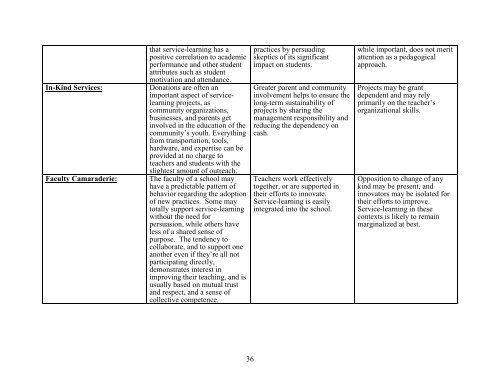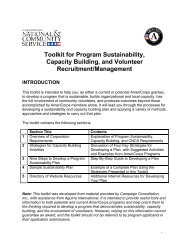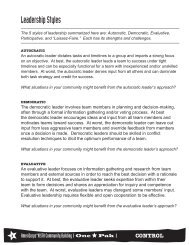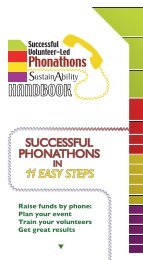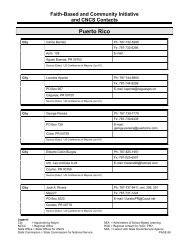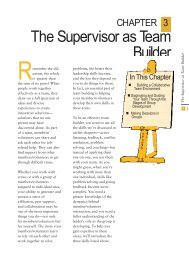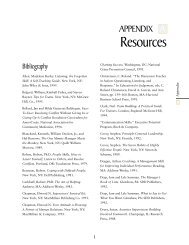MAKE IT LAST FOREVER: THE ... - National Service Resource Center
MAKE IT LAST FOREVER: THE ... - National Service Resource Center
MAKE IT LAST FOREVER: THE ... - National Service Resource Center
You also want an ePaper? Increase the reach of your titles
YUMPU automatically turns print PDFs into web optimized ePapers that Google loves.
that service-learning has a<br />
positive correlation to academic<br />
performance and other student<br />
attributes such as student<br />
motivation and attendance.<br />
In-Kind <strong>Service</strong>s: Donations are often an<br />
important aspect of servicelearning<br />
projects, as<br />
community organizations,<br />
businesses, and parents get<br />
involved in the education of the<br />
community’s youth. Everything<br />
from transportation, tools,<br />
hardware, and expertise can be<br />
provided at no charge to<br />
teachers and students with the<br />
slightest amount of outreach.<br />
Faculty Camaraderie: The faculty of a school may<br />
have a predictable pattern of<br />
behavior regarding the adoption<br />
of new practices. Some may<br />
totally support service-learning<br />
without the need for<br />
persuasion, while others have<br />
less of a shared sense of<br />
purpose. The tendency to<br />
collaborate, and to support one<br />
another even if they’re all not<br />
participating directly,<br />
demonstrates interest in<br />
improving their teaching, and is<br />
usually based on mutual trust<br />
and respect, and a sense of<br />
collective competence.<br />
36<br />
practices by persuading<br />
skeptics of its significant<br />
impact on students.<br />
Greater parent and community<br />
involvement helps to ensure the<br />
long-term sustainability of<br />
projects by sharing the<br />
management responsibility and<br />
reducing the dependency on<br />
cash.<br />
Teachers work effectively<br />
together, or are supported in<br />
their efforts to innovate.<br />
<strong>Service</strong>-learning is easily<br />
integrated into the school.<br />
while important, does not merit<br />
attention as a pedagogical<br />
approach.<br />
Projects may be grant<br />
dependent and may rely<br />
primarily on the teacher’s<br />
organizational skills.<br />
Opposition to change of any<br />
kind may be present, and<br />
innovators may be isolated for<br />
their efforts to improve.<br />
<strong>Service</strong>-learning in these<br />
contexts is likely to remain<br />
marginalized at best.


